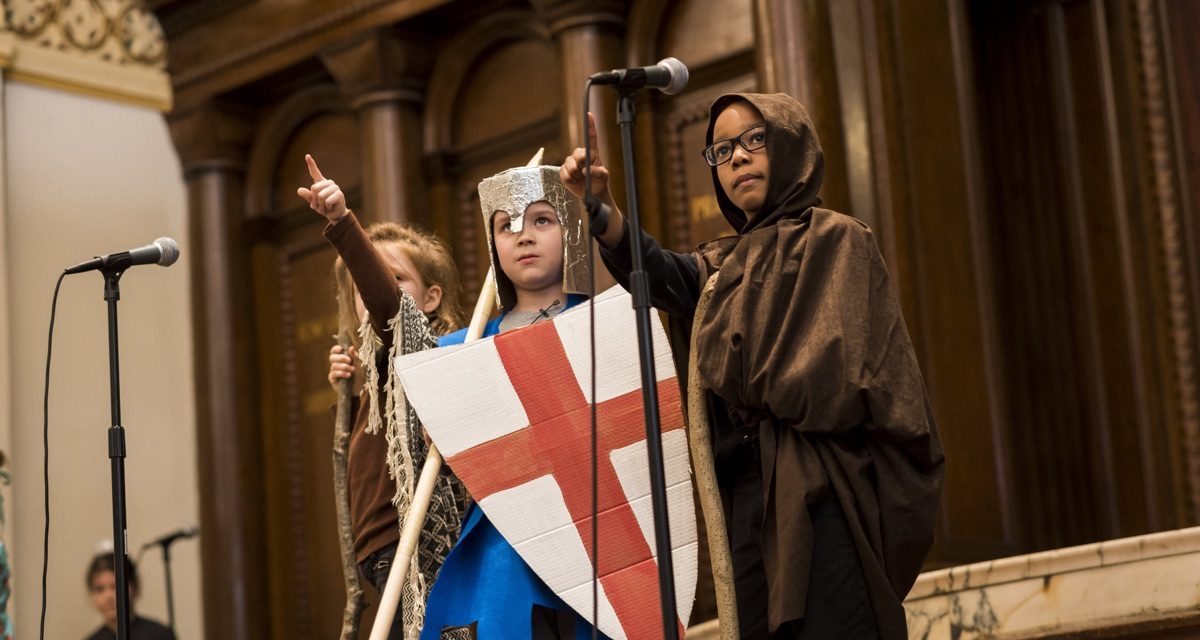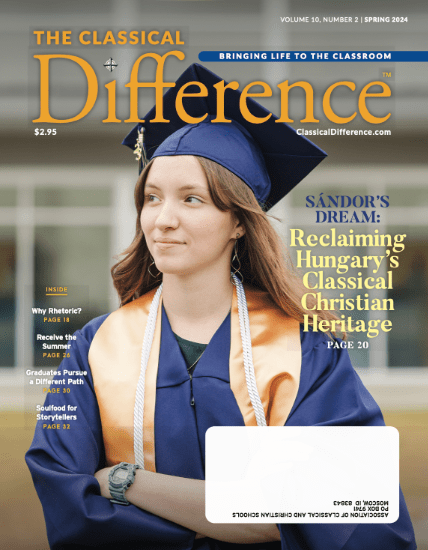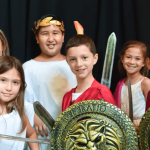By KATHARINE SAVAGE
Where I live, mention the Great Books or the Western tradition, and you are likely given a polite sneer, at best. At worst, you’ll hear the all too familiar string of adjectives: “racist,” “post-colonial,” “bigoted.” And this is a real conundrum for parents who see the obvious fruits of their local classical Christian school but still aspire to be welcoming and winsome in their community.
The Subject and the Object
How did we get backed against this wall? The truth is actually embedded in a simple grammar lesson. It all boils down to subjects and objects. The “subject” is the “I” or the author. The “object” is the idea discussed or the truth to be told.
Before a certain point in history, there was a consensus that “subjects” could connect with the “objects” out in reality and say something universally meaningful. The Great Conversation of the West spans millennia, discussing the nature of objects. The Great Books aren’t great because of the subjects who wrote them. They are great because of the objects they reflect and the Creator to whom all objects point. They move us from our narrow lives of subjectivity and personal identity to transcendent belief and enduring action.
But this grammar lesson takes a dark turn. Modern philosophers ripped apart the “subject” and the “object” so that people could not know anything real about objects—if they exist at all! That tear was never mended. Life is then trapped in a subjective experience—your truth, your preference, your privilege.
Bringing Back the Object
Fast forward to today and this break between subject and object has only widened. People no longer dialogue about what is eternally True, Good, and Beautiful. Cut off from the object, people can only shout about the validity of the subject, armed with that endless stream of adjectives. We are inevitably backed against a wall because history provides a limitless cache of sinful, selfish subjects caught up in power struggles with other subjects. With no objective Creator to change our minds, break our hearts, and direct the world, the only verb allowed is “oppress.” It is a repetitive, dead-end turn of phrase.
If we want our children to remain trapped in their subject of self-identity, their base desires, and their powerful egos, then we must keep the Western tradition far from them—separated by a hedge of derogatory adjectives. If we want to nourish our children with lovely and debate-worthy ideas which inspire and endure, then we must confidently open our hands and receive the beautiful objects of our Western heritage.
Classical Christian education humbly acknowledges the faults of the subject, but remains committed to a posture of remembering the object. In doing so, we move out away from that wall, able to share these abiding truths and preserve The Great Conversation for a future generation. ![]()













You do realize Jesus was Middle-Eastern, right?